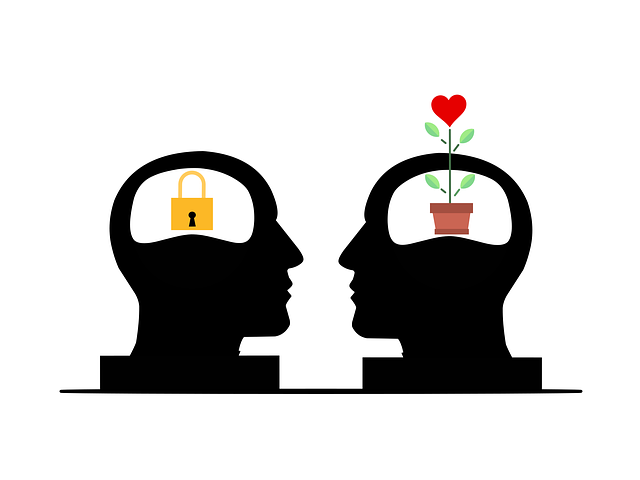In today's diverse society, Englewood Alcohol Abuse Therapy emphasizes cultural sensitivity in mental healthcare, addressing challenges like language differences and differing cultural beliefs through initiatives such as public awareness campaigns, self-awareness exercises, and mandatory training. This approach fosters an inclusive environment, improves patient engagement and outcomes, and enhances care quality for both patients and providers, making culturally competent care a core value at Englewood.
In today’s diverse society, cultural sensitivity in mental healthcare is paramount. This comprehensive guide explores the intricate dynamics of providing culturally competent care, particularly at Englewood Alcohol Abuse Therapy. We delve into understanding cultural diversity within mental health contexts, dissecting communication challenges between providers and patients from different backgrounds.
Through practical strategies, we demonstrate how Englewood Alcohol Abuse Therapy fosters a culturally sensitive environment, ultimately benefiting both patients and healthcare providers.
- Understanding Cultural Diversity in Mental Healthcare
- Challenges in Cross-Cultural Communication
- Strategies for Culturally Sensitive Practice at Englewood Alcohol Abuse Therapy
- Benefits of Culturally Competent Care for Patients and Providers
Understanding Cultural Diversity in Mental Healthcare

In today’s diverse society, mental healthcare professionals must embrace cultural sensitivity to provide effective and equitable treatment. Cultural diversity in mental healthcare refers to the variety of beliefs, values, customs, and languages brought by individuals from different ethnic, racial, religious, and socioeconomic backgrounds. Recognizing this diversity is crucial for creating an inclusive environment that fosters trust and understanding between patients and providers. At Englewood Alcohol Abuse Therapy, we prioritize cultural sensitivity as a core value, ensuring that our services are accessible and tailored to meet the unique needs of every individual.
Understanding cultural nuances is essential for addressing mental health concerns sensitively. Different cultures may have distinct conceptions of mental wellness, self-care practices, and expressions of distress. For instance, some communities emphasize collective support systems, while others prioritize individual coping mechanisms. By integrating cultural competency into practice, mental health professionals can offer more personalized care, improve patient outcomes, and enhance overall mental health awareness. This approach not only respects patients’ identities but also enables providers to connect with them on a deeper level, thereby promoting healing and recovery.
Challenges in Cross-Cultural Communication

In the diverse landscape of mental healthcare, cross-cultural communication presents unique challenges that require careful navigation. As Englewood Alcohol Abuse Therapy attests, understanding cultural nuances is paramount to providing effective care. The barriers often stem from language differences, which can hinder open dialogue and accurate assessment, as subtleties in expression and interpretation may be lost in translation. Moreover, differing cultural beliefs and values about mental health, illness, and healing processes create complex dynamics. For instance, some cultures may view mental distress through a spiritual or familial lens, while others prioritize individualism in emotional healing.
To bridge these gaps, healthcare providers must engage in active listening, remain culturally present, and demonstrate genuine interest in understanding the client’s perspective. Compassion cultivation practices and burnout prevention strategies for healthcare providers can play a significant role here. By incorporating emotional healing processes that resonate with diverse cultural backgrounds, mental health professionals can foster trust, improve engagement, and ultimately enhance therapeutic outcomes.
Strategies for Culturally Sensitive Practice at Englewood Alcohol Abuse Therapy

At Englewood Alcohol Abuse Therapy, we recognize that cultural sensitivity is paramount in providing effective mental healthcare. To this end, our strategies focus on fostering an inclusive environment that respects and values diverse cultural backgrounds. One key approach involves engaging in continuous Public Awareness Campaigns Development to educate both clients and healthcare providers about the importance of cultural competency. By raising awareness, we aim to dispel stereotypes and promote understanding.
Additionally, we implement Self-Awareness Exercises for our staff to help them recognize their own biases and preconceptions. These exercises are designed to enhance empathy and improve communication with individuals from different cultural walks of life. Furthermore, mandatory Healthcare Provider Cultural Competency Training is an integral part of our program, ensuring that every member of our team is equipped with the knowledge and skills to offer culturally sensitive care. Through these initiatives, Englewood Alcohol Abuse Therapy strives to create a nurturing atmosphere where every client feels heard, understood, and supported on their journey towards recovery.
Benefits of Culturally Competent Care for Patients and Providers

Culturally competent care in mental healthcare offers a multitude of benefits for both patients and providers. By recognizing and respecting an individual’s cultural background, beliefs, and values, therapists create a safe and supportive environment that fosters open communication. This is particularly crucial in communities like Englewood, where diverse populations may face unique challenges related to mood management and mental illness stigma reduction efforts. Patients feel understood and empowered, leading to increased engagement in their treatment plans, better adherence to recommendations, and ultimately, improved outcomes.
For providers, cultivating cultural sensitivity enhances their ability to connect with patients from different walks of life. This not only improves the quality of care but also reduces potential barriers caused by misunderstandings or insensitive approaches. Moreover, it encourages therapists to adapt evidence-based practices, such as those offered at Englewood Alcohol Abuse Therapy, to meet the specific needs and preferences of diverse patient populations, thereby boosting confidence and self-efficacy among both caregivers and those seeking help for mental illness.
Mental healthcare professionals play a vital role in fostering equitable access to care, especially within diverse communities. By understanding cultural nuances and implementing culturally sensitive practices, such as those demonstrated at Englewood Alcohol Abuse Therapy, we can significantly enhance patient outcomes. Overcoming communication barriers and adopting inclusive strategies ensure that every individual receives tailored support, ultimately enriching the therapeutic process for both patients and providers. This approach is not only beneficial for individual healing but also contributes to building stronger, more resilient communities.














